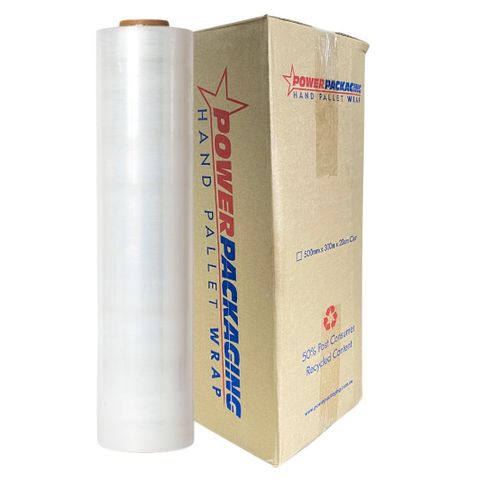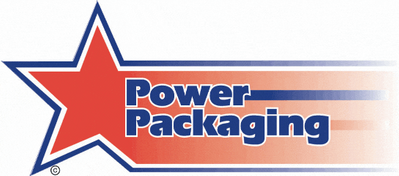- Home /
- Pallet Wrap /
- Hand Wrap /
- 50% Recycled Content Wrap
Search Products
Product Categories

50% Recycled Content Wrap
Description
Eco-Friendly Pallet Wrap | 50% Recycled Content | Sustainable Solutions
Our 50% PCR Recycled Content Stretch Wrap range is designed with sustainability and performance in mind, aligning with the Australian Packaging Covenant Organisation's (APCO) 2025 National Packaging Targets.
These stretch wrap products feature 50% post-consumer resin (PCR) recycled content, helping businesses reduce plastic waste and actively support a circular economy without sacrificing load stability or product protection.
Product Options:
- HSF20PCR: 50% PCR Recycled Content, 20um, 300m, Clear - Hand Rolls
- MSF20PCR: 50% PCR Recycled Content, 20um, 1500m, Clear - Machine Rolls
With these options, you can meet your sustainability objectives while maintaining compliance with national environmental standards, ensuring that every load is secure and eco-conscious.
Frequently Asked Questions About Our Eco-Friendly & Recycled Content Wraps
1. What is 50% Recycled Content Stretch Wrap?
This stretch wrap is made with 50% post-consumer recycled (PCR) plastic, sourced from used materials such as bottles and containers. It provides the same strength and durability as conventional wraps while reducing plastic waste and supporting sustainable practices.
2. How does the eco-friendly pallet wrap contribute to sustainability?
Eco-friendly pallet wrap reduces the need for virgin plastics by reusing materials that would otherwise end up in landfills. This aligns with sustainability goals like those set by the Australian Packaging Covenant Organisation (APCO) for 2025, which targets 50% recycled content in packaging.
3. Can recycled content pallet wrap maintain the same load stability as conventional wraps?
Yes, recycled content pallet wraps are designed to offer the same load stability, flexibility, and strength as conventional wraps. They ensure secure packaging for goods during transit without compromising on quality.
4. What sizes are available for the recycled content stretch wrap?
The recycled content stretch wrap is available in various dimensions, such as:
- 20um x 300m rolls (ideal for smaller applications).
- 20um x 1500m rolls (designed for high-volume use). Check the product details for more specifications and pricing.
5. What is Post-Consumer Resin (PCR)?
Post-Consumer Resin (PCR) is a type of recycled plastic derived from used consumer products such as bottles, containers, and packaging materials. These plastics are collected, cleaned, and processed to create new materials, reducing landfill waste and promoting a circular economy. PCR is widely used in eco-friendly packaging solutions like recycled content stretch wrap.
What is PCR Recycled Content and Why it Matters for Stretch Wrap?
Post-Consumer Resin (PCR) plastic is a sustainable material derived from recycled plastic waste, specifically from items that have already been used by consumers, such as bottles, containers, and other everyday plastic products. Instead of going to landfills, these plastics are collected, cleaned, processed, and transformed into new materials, like PCR stretch wrap, which can be used for packaging and shipping.
Using PCR plastic in stretch wrap has significant environmental benefits. By incorporating recycled content, PCR stretch wrap reduces the demand for virgin plastic, conserves natural resources, and cuts down on waste. For businesses, adopting PCR-based stretch wrap is a proactive step toward sustainability goals, like those set by the Australian Packaging Covenant Organisation (APCO) for 2025, which targets 50% recycled content in packaging.
PCR stretch wrap is designed to perform just like conventional wraps, offering strength, flexibility, and load stability to protect goods during transit. This means companies can support a circular economy and reduce their environmental footprint without sacrificing the quality or reliability of their packaging solutions.
